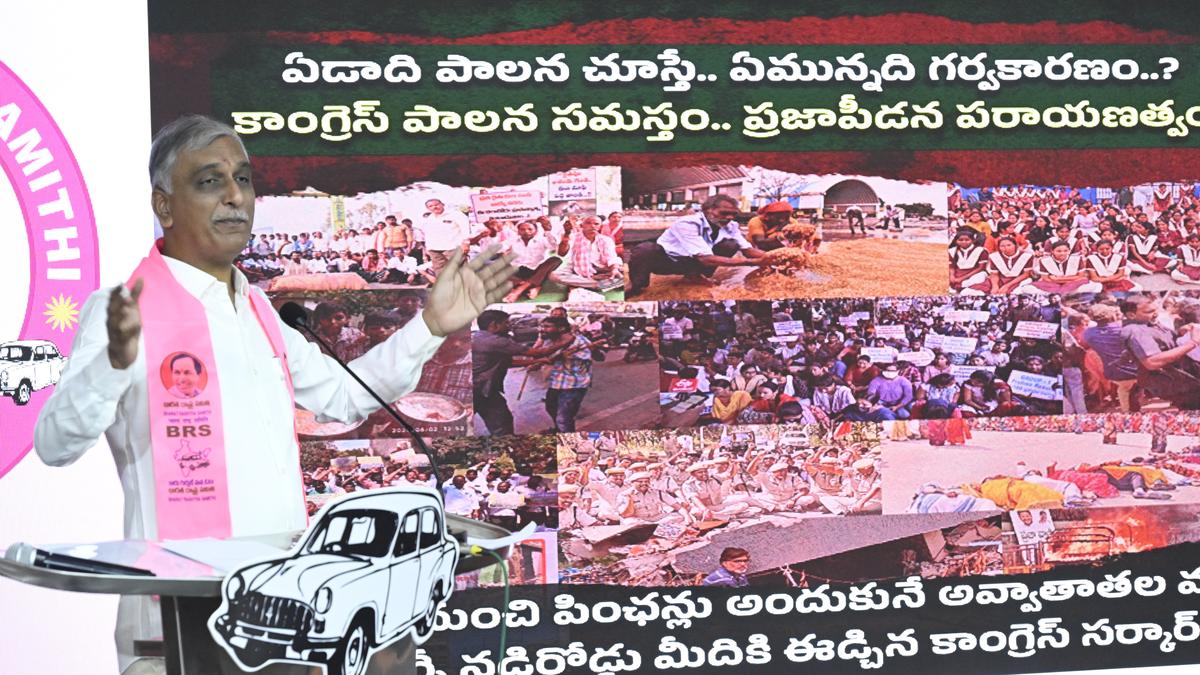
BRS releases charge sheet criticising Congress’ one-year rule in Telangana; Siddipet MLA Harish Rao targets CM Revanth Reddy
The Hindu
BRS criticizes Congress government in Telangana for unfulfilled promises and economic stagnation in charge sheet release.
Continuing its criticism of the Congress government’s first year in power in Telangana, the main Opposition party, Bharat Rashtra Samithi (BRS), has released a charge sheet titled “Edadi Palana - Edatagani Vanchana” (One-Year Rule - Unending Deception).
The document highlights the alleged failures of the Revanth Reddy-led government in fulfilling key poll promises, including the crop loan waiver and Rythu Bharosa.
Did BJP-ruled States give as many jobs as Telangana did? Revanth challenges Modi
Speaking to the media at the release of the charge sheet at Telangana Bhavan on Sunday (December 8, 2024), senior party leader and Siddipet MLA T. Harish Rao accused the Congress government of damaging Hyderabad’s brand image through what he termed “unmindful decisions.”
Highlighting the unfulfilled promise of a ₹2 lakh crop loan waiver — a commitment Chief Minister Revanth Reddy pledged to implement immediately after taking office — Mr. Rao stated, “Even after one year, 50% of farmers are still waiting for loan relief. By making 31 excuses, the government evaded the promise, yet it falsely declared that the crop loans had been waived.”
Mr. Rao further criticised the suspension of Rythu Bandhu assistance for two seasons, contrasting it with the BRS’s record of providing ₹72,817 crore in direct financial support to farmers over 11 installments under the leadership of former Chief Minister K. Chandrashekar Rao (KCR).
The former Minister also pointed out that the Congress government’s failure to implement the ₹2,500 monthly assistance promised under the Maha Lakshmi scheme. Extending his criticism to broader governance issues, Mr. Rao accused the Congress government of administrative failure and neglect of public welfare. He alleged police excesses, the demolition of homes, food poisoning in the government educational institutions and inaction on public grievances, citing them as evidence of the government’s insensitivity.











